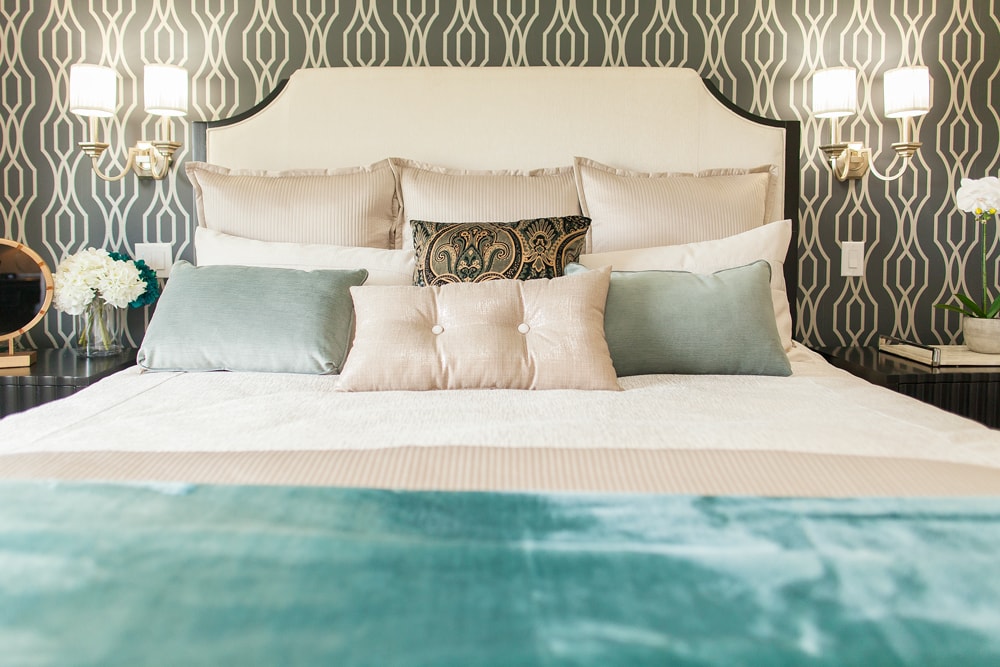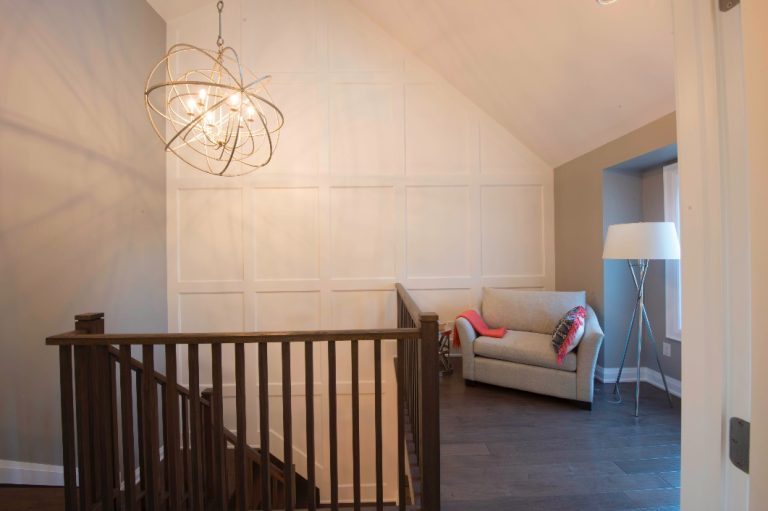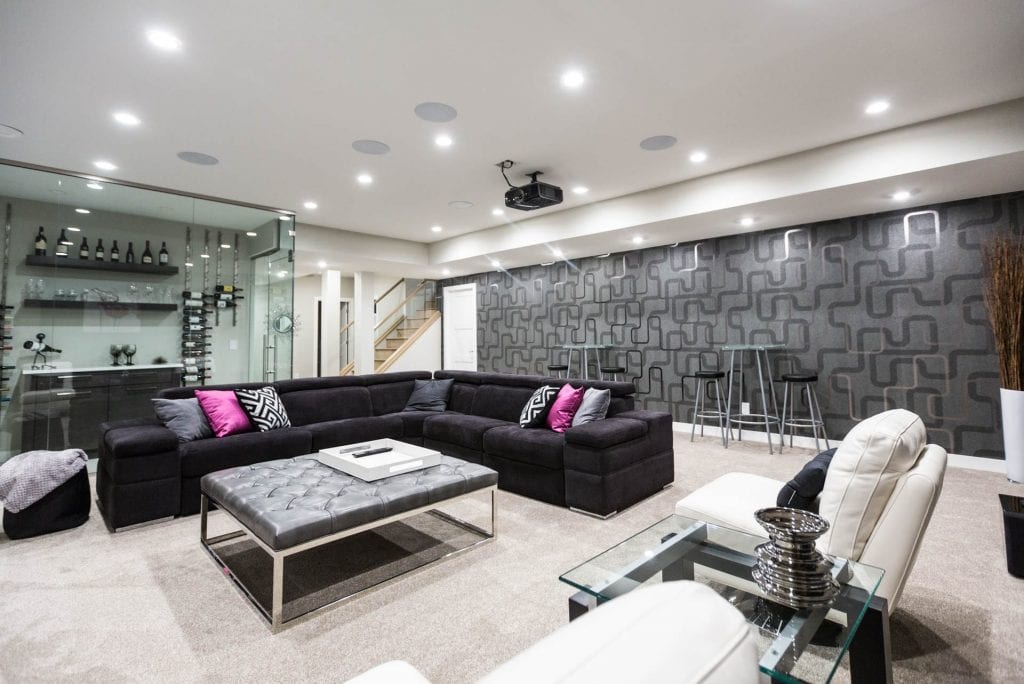I think custom kitchen cabinets are a great investment—but only if you do it right, the first time. Whether you’re renovating your forever home or boosting your home’s resale value,...

Sherry Holmes’ Tips for Making your Accent Walls Pop
By Sherry Holmes
Mike’s Advice / Design & Renovation Inspiration
Friday, June 26th, 2020 @ 4:26pm
When you update one wall in a room, spicing it up with a new paint colour, some wallpaper, or other material, you’re creating an accent wall. This makes it stand out from the other three walls in the room, creating a focal point that will make you pay attention to what’s going on in that space.
Does every room need an accent wall? Where should you place it? What kind of material can you use? What may have seemed like a simple job of slapping a fresh colour on one wall can actually be more complicated than it seems. Let’s break it down a bit.
Where should I place an accent wall?
There are a few rules to follow when you’re choosing which wall you want to accent. Choosing the right wall to accent can take a room to the next level. But when you choose the wrong one, it can make an already cluttered room look even messier.
Your accent wall should be where your eye is already naturally drawn when you enter a room. In a living room, for example, you might want to emphasize the wall with a fireplace, or one that has the most interesting architecture (like an alcove or a wall with some curvature).

For bedrooms, the obvious focal point would be to accent the wall that your bed’s headboard sits against.
Even a bathroom can feature a good accent wall. Just be careful that your chosen material is water resistant.
One other tip to choosing an accent wall location: in small spaces, it can help create a transition. For example, if you’ve got an office nook carved out in a living room, or at a landing on top of the stairs, placing an accent wall in that main area can help distinguish the two spaces.
What are popular styles of accent wall?
Most commonly, you’ll see accent walls that are painted a different colour, or feature one wall of wall papering. Why? These ones are pretty easy DIY jobs, that most homeowners could handle on their own. If you mess up the painting process, you only have to live with some visual problems – not structural ones. A painted wall is low commitment – if you wind up not liking the look, or decide to refocus the room, it’s easy to undo.
RELATED
You can also make use of hard elements like wood, stone, or tile to create an accent wall in room. Instead of putting a headboard on your bed, you could backsplash the wall with wooden tiles to create a rustic effect.
Textured accent walls are a great way to add dimension to a space without getting to wild with colour choices.

Adding a wainscotting feature will naturally draw your eye to the wall in question, and not require updating your colour schemes.
RELATED
The accent wall doesn’t necessarily HAVE to be a wall. For example – you could use a row of built in cabinets or shelves in a kitchen to create an accent wall effect. This even pulls double duty by giving you some good storage options while giving you an accent effect.
When is an accent wall a bad idea?
I don’t think an accent wall is ever a bad idea, but you can choose the WRONG wall to accent. Placement is super important to creating an accent wall that provides the intended effect. Does every room in your home need an accent wall? Absolutely not – but one or two chosen rooms can create a really nice affect.
Generally, I’ve seen the rule stated that your room colours should follow the 60-30-10 rule. 60% of the room should use represent the dominant colour wall of your room (walls, decor). 30% should use a secondary colour. And the final 10% should be represented by your accent colour.

If your chosen accent colour already has significant representation in the room, it’s not really an accent wall anymore.
For some, the accent wall trend is rooted from the early 2000s, so any room they see featuring an accent wall will automatically read dated. Does that make it a bad idea? I don’t think so, if you love the way they look in your home.
Are accent walls outdated?
My honest answer here is: no. While they may have gone out of style a bit after the early 2000s, they’ve started making a comeback in a big way.
An accent wall doesn’t simply have to be a different paint colour than the rest of the room. You can get creative by using wooden or masonry features in place of a new colour. Trending paint colours may change from year to year, but wood and stone are pretty timeless additions to any home. Get creative with your choices to build a feature wall that stands the test of time.
READ NEXT








